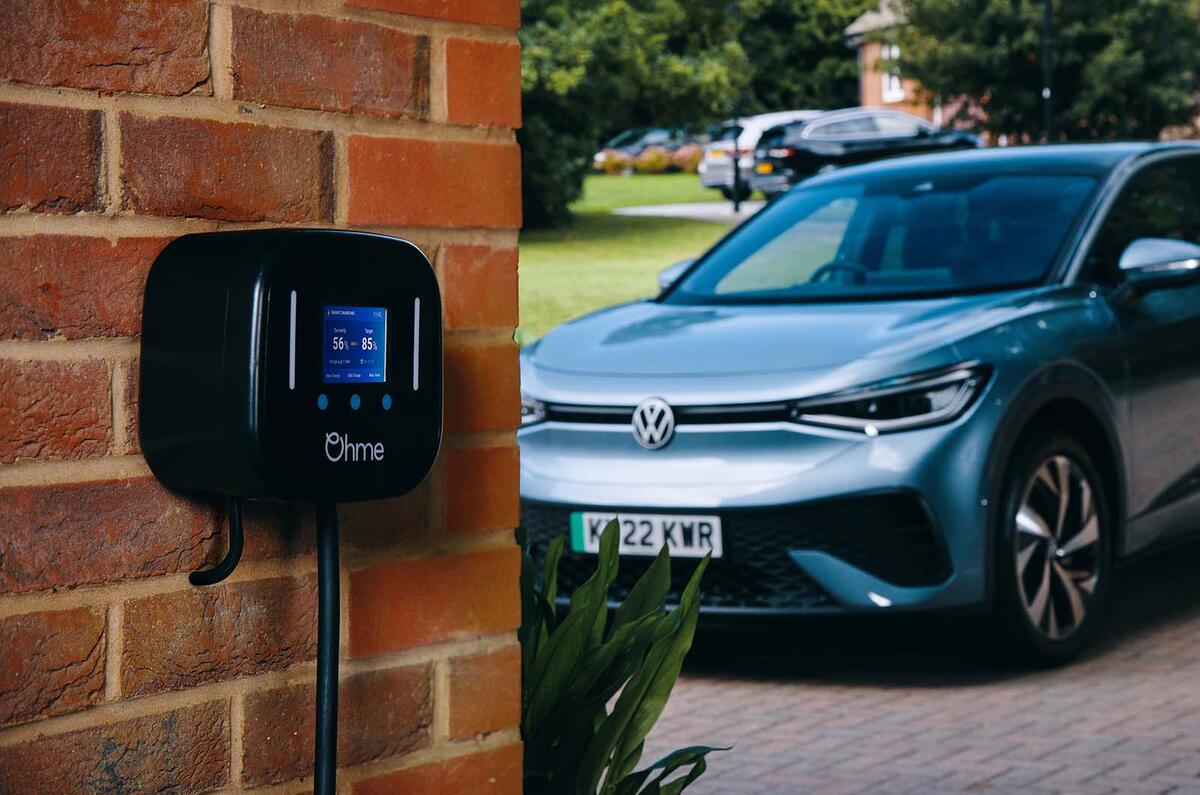Recent investment in renewable energy will ensure the current supply and price crisis can be overcome within a couple of years, founder of intelligent charging provider Ohme, Dave Watson, has told Autocar.
Reflecting on the energy issues currently dominating headlines, Watson said: “Green energy is coming on tap fast. The investment began years ago and the implementation is just around the corner. That investment is just the start, too. The incentives to build more onshore wind and solar have never been greater.
“Yes, of course in the short-term it is very painful. Paying double what you were a year ago cannot be anything other than terrible. The trouble we’re in now is a massive pinch - but it will only last a couple of years because the investment has already gone into creating the renewable energy sources that will solve the crisis.”
Ohme is the preferred charging partner of the Volkswagen Group and Motability in the UK, with its hardware and software uniquely able to activate charging when energy is at its most abundant, and therefore, cheapest at any time of day, ensuring excess energy is stored and - in conjunction with a flexible tariff - saving customers money.

Talking about the energy crisis’s likely impact on electric car sales, Watson said: “Today’s situation is a double-edged sword. The downside is that people are paying more for their energy, so one of the big savings has been undermined. The price cap has been critical, because there was a risk that charging an EV could have become more expensive than filling with petrol or diesel.
“But the higher energy prices and higher volatility also makes the services we provide more valuable to customers and suppliers. We’re not just about energy supply, but managing that supply to best effect, and that’s never been more important. There's now more value to smart tech.”
Watson also highlighted the importance of selling more electric cars in order to take advantage of their energy storage capacity. “A nuclear power station generates a gigawatt of energy,” he said. “Around 150,000-200,000 electric cars would have the equivalent storage, but of course they won’t all be plugged in at the same time - so let’s say that every 350,000 electric cars equals a nuclear power station of storage.
“Today, in the UK, there have been a million electric cars registered - so that’s the equivalent storage of what three nuclear power stations would generate, and probably now growing by at least a nuclear power station a year, there and ready to balance the grid.







Join the debate
Add your comment
Surely most EV's are plugged in overnight when power demand is lowest anyway, so the need for them to feed power back into the grid is lowest so doesn't really help.
You can leave them plugged in and program a time to charge; they're not iPhones.
The energy grid requires: 'slow to increase output' mid-price base generation fuels like coal and nuclear; 'varying output' cheap, secondary fuels like wind and solar to reduce dependency on base fuels; and 'fast to increase output', expensive fuels like gas and battery storage to deal with spikes in demand.
This guy is saying that EVs will allow the UK to increase its base generation fuels (decreasing overall cost) by increasing overall demand. It's not explicitly stated in the article but other nations use EV battery storage to feed back into the grid, reducing demand for gas (and overall cost). Ergo, a fleet of millions of EVs will lower the cost per unit of energy generation with some smart planning and technology.
In my experience, prices of almost anything, rarely go back down to where they were, once they have gone up. Electricity is a good example of this.
If we think we will ever get back to £1.25 per litre.....forget it. The fuel companies will see to that!
As for putting expensive electricity back into the grid (probably at less than you paid for it)....its laughable.
How do you know when you might to leave the house...Hospital emergency? Cant rely on an Ambulance to turn-up....In hotter climes, wild fire....oh just hold on while I charge my car up!